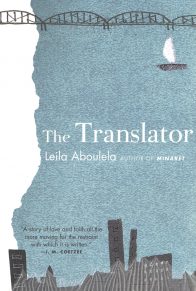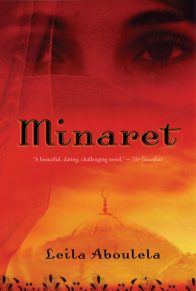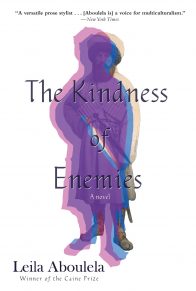About the Book
Since her award-winning debut novel, Minaret, Leila Aboulela has been praised by J.M. Coetzee, Ali Smith, Aminatta Forna, and Anthony Marra among others for her rich and nuanced depictions of Islamic spiritual and political life. Her latest collection, Elsewhere, Home, draws us ineluctably into the lives of immigrants at home and abroad as they forge new identities and reshape old ones.
A young woman’s encounter with a former classmate elicits painful reminders of her former life in Khartoum. A wealthy young Sudanese woman studying in Aberdeen begins an unlikely friendship with one of her Scottish classmates. A woman experiences an evolving relationship to her favorite writer, whose portrait of their shared culture both reflects and conflicts with her own sense of identity.
Shuttling between the dusty, sun-baked streets of Khartoum and the university halls and cramped apartments of Aberdeen and London, Elsewhere, Home explores, with subtlety and restraint, the profound feelings of yearning, loss, and alienation that come with leaving one’s homeland in pursuit of a different life.
Praise for Elsewhere, Home
“A yearning for home tugs at the souls of Aboulela’s characters in this beautiful and desolate collection…There is so much quiet brilliance [here].”—Guardian
“Elsewhere, Home is a rich and poignant reflection of a Britain built as ever from multiple perspectives and starting points…These beautifully focused tales of Khartoum, Edinburgh, London, Cairo and beyond are a delight.”—A.L. Kennedy
“[Aboulela] is one of the best short story writers alive. Publishing her at Granta Magazine and Freeman’s has been one of the highlights of my life as an editor.”—John Freeman
“Exquisite fiction. There are gems here, elegantly cut, polished and framed. Luminous.”—Fadia Faqir
“Full of elegance, tenderness and the small vulnerabilities that make up our lives.”—Roma Tearne
Praise for The Kindness of Enemies
“Aboulela has written a book for grownups…that speaks more forcefully than a thousand opinion pieces…timeless.”—Anthony Marra, San Francisco Chronicle
“An absorbing novel…reminds us of the complexity of the web woven by those threads of faith, nationality, politics and history.”—New York Times Book Review
“A rich, multilayered story…compelling.”—The Washington Post
“Radiant with historical detail and vivid descriptions…an invitation to see identity as more variegated than the either/or distillations of the Global War on Terror.”—Los Angeles Review of Books
Excerpt
Her country disturbed him. It reminded him of the first time he had held a human bone, the touching simplicity of it, the strength. Such was the landscape of Khartoum; bone-coloured sky, a purity in the desert air, bareness. A bit austere and therefore static. But he was driven by feelings, that was why he was here, that was why he had crossed boundaries and seas, and now walked through a blaze of hot air from the airplane steps to the terminal. She was waiting for him outside the airport, wearing national dress, a pale orange to be that made her appear even more slender than she was. I mustn’t kiss you. No, she laughed, you mustn’t. He had forgotten how vibrant she was, how happy she made him feel. She talked, asked him questions. Did you have a good trip, are you hungry, did all your luggage arrive, were they nice to you in customs, I missed you too. There was a catch in her voice when she said that; in spite of her confidence she was shy. Come, come and meet my brother. They began to walk across a car park that was disorganised and dusty, the sun gleaming on the cars.
Her brother was leaning against a dilapidated Toyota. He was lanky with a hard-done-by expression. He looked irritated. Perhaps by the conflicting desire to get his sister off his hands and his misgivings about her marrying a foreigner. How did he see him now, through those narrow eyes, how did he judge him?
















